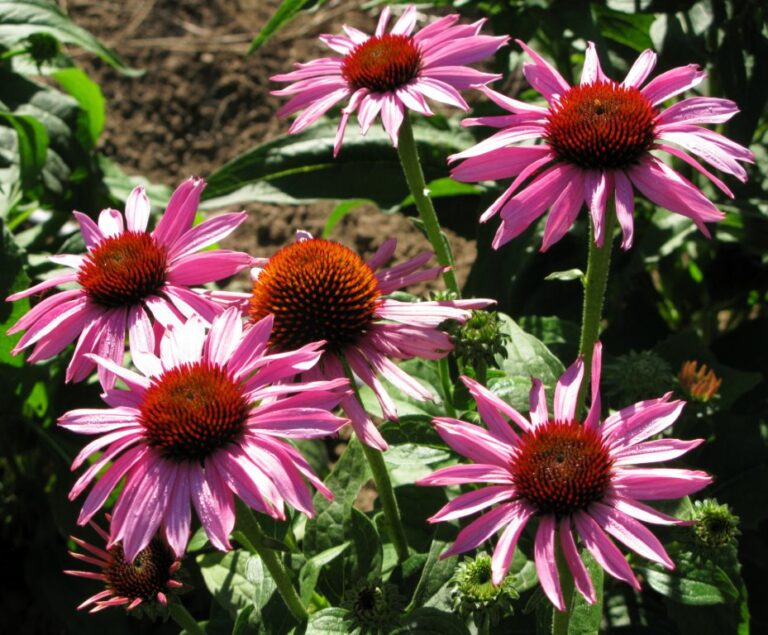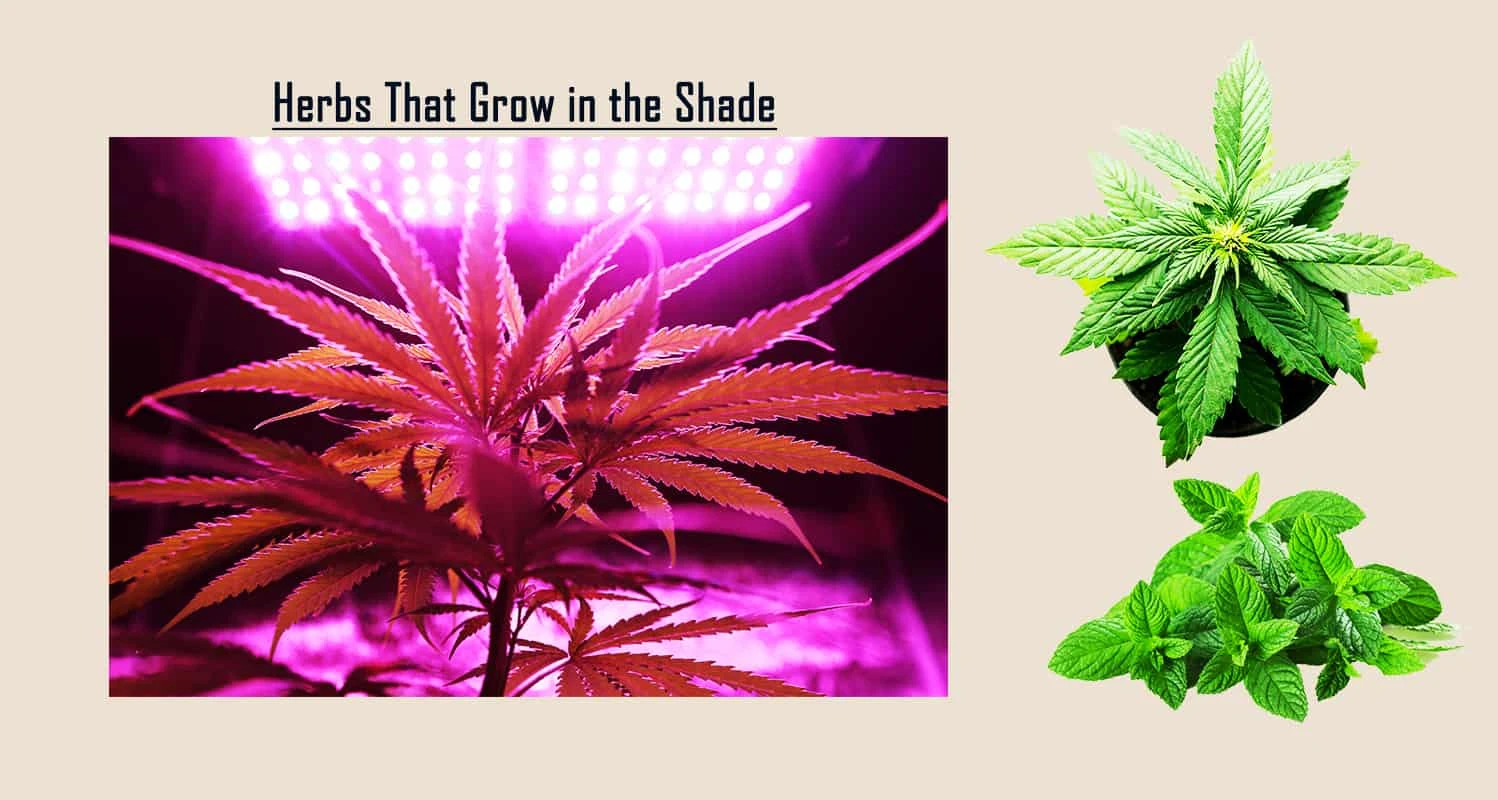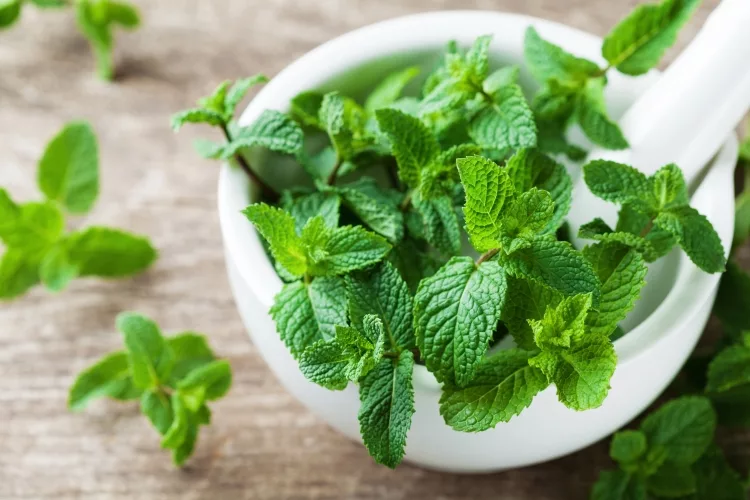5 Best Herbs to Grow in a Shady Garden

Low Light Indoor Herbs Growing Shade Tolerant Herbs Inside The Home
Growing herbs in low light conditions requires some special considerations to ensure their optimal growth and health. Here are a few things to keep in mind: Choose the right herbs: Not all herbs are suitable for low light conditions. Look for shade-tolerant herbs that can thrive with less sunlight. Some examples include chives, mint, parsley.

10 Best Indoor Herbs to Grow in Low Light in 2021 Herbs indoors
7 Herbs That Can Grow Indoors with Low Light. 1. Mint. Mint is a fragrant and versatile herb that can add a refreshing touch to your dishes and beverages. It has vibrant green leaves and a delightful aroma. Mint is known for its ability to tolerate low light conditions, making it an ideal choice for indoor gardening. To grow mint in low light.

Best Herbs For Low Light Situations Blog Martys Garden Community
Bay. Bay is another herb that grows best in low light. They prefer a sunny location but will grow just fine in shaded areas as well. Because of this, it will grow quite well as a plant that is trained to go into the shade. The leaves on bay leaves turn a dark green when they are exposed to the sun, and when they are removed from the sun, they.

5 Low Light Herbs to Grow in Your Kitchen
Oregano. An aromatic perennial herb of the mint family known for its flavorful and pungent leaves and flowers. The brighter the light, the better the plant will grow. At least provide 900-foot candles of light. Place the oregano plants no closer than 5 or 6 inches to the above hanging lights.

The Best Herbs to Grow indoors or in Low Light Situations Growing
Mint is one of those herbs that grow in shade or sun. Old-fashioned peppermint ( Mentha x piperita) is a personal favorite. Apple and pineapple mints ( Mentha suaveolens and Mentha suaveolens 'Variegata' respectively) are also terrific. Grow mint in a pot to contain its rampant growth. Mint plants are very aggressive.

The Best LED Grow Lights for Indoor Herbs in 2021
2. Kale (3 to 4 hours of sunlight) 3. Asian mustard greens (2 to 3 hours of sunlight) 4. Beets (3 to 4 hours of sunlight) 5. Bush beans (4 to 5 hours of sunlight) In a perfect world, we'd all have flat, wide open, south-facing gardens that get 10 to 12 hours of sun a day, and there would be no fences, tree canopies, or two-story homes to.

Herbs That Grow Indoors With Low Light Top 6 Struggles of Growing
2. Lemon Balm. Known for its citrusy flavor, lemon balm is a popular herb for indoor gardens. As a member of the mint family, lemon balm is a hardy plant that grows quickly. Soil: Well-drained, sandy loam soil works best, but this hardy herb can grow in just about any soil as long as it's not very wet.

6 Incredible Low Light Herbs to Grow Indoors in 2021 Growing plants
Many of these herbs will be culinary herbs (perfect!), so you'll have a good selection of low-light options to choose from. These include cilantro, mint, parsley, thyme, lemon balm, chives, and oregano. All of these herbs adapt well to being grown in containers, too, which makes them ideal not only for low-light conditions but for being grown.

Gallery Southern Light Herbs Gallery Southern Light Herbs
Golden oregano is the only low-light herb variety of oregano because their leaves burn easily in bright sunlight. This herb does best in hardiness zones 4 through 10 and prefers to be grown in a lighter soil.. Low-light herbs will make great contributions to any indoor (or outdoor!) garden. Editors' Recommendations. How to grow basil indoors.

SANITIZING SOIL BEFORE POTTING SUCCULENTS/INDOOR GARDENING Gardening
Special considerations for low light conditions. When growing herbs under low light conditions it will be necessary to tweak your growing or management practices slightly to accommodate the environment. Plants grow differently in the lower light; caring for them the same way as herbs grown in full-sun will lead to problems and poor growth.

10 Herbs That Grow in the Shade Low Light Herbs
Use the following light requirement guidelines for the low light tolerant herbs discussed above. Herb Min Sunlight Hrs (per day) DLI (mol/m²/day) Notes; Mint: 3-4: 12-15: Hardy and adaptable to various light conditions. Parsley: 3-5: 12-16: Prefers full sun but can manage in lower light. Chives: 4-6: 14-18:

Pin on Gemüsegarten
24. Purple dead nettle. Purple dead nettle is a perennial ornamental herb with lightly-striped green leaves and lovely light-purple flowers. As a mint relative, this plant is aggressive enough to survive and thrive in shady conditions. Dead nettle is most commonly used as a ground cover in shade gardens.

10 Herbs That Grow in the Shade Low Light Herbs
Low-light herbs are a boon for those living in apartments with limited access to natural light or for those who wish to cultivate a green corner in a dimly lit room. Some of the popular herbs that fall into this category include mint, chives, parsley, and thyme.

26 herbs that grow in shade for lowlight garden areas Medicinal
Tips for Growing Herbs in Low Light. Even though many of our favorite herbs can be grown inside the home, a little extra diligence is the key to success when growing herbs in low-light conditions. Thinking back to high school science class, light generates plant growth through the process of photosynthesis. The more light a plant receives, the.
:max_bytes(150000):strip_icc()/herbs-for-a-shade-garden-1762054-05-2a03353c6e1c47909a6fd4c96e44adff.jpg)
5 Best Herbs to Grow in a Shady Garden
24 Herbs That Grow in Some Shade. By: Jessica Yonker and Debbie Wolfe. From culinary favorites like parsley and mint to medicinal go-tos like angelica and nettle, these shade-loving herbs will thrive in low light gardens. Price and stock could change after publish date, and we may make money off these affiliate links.

Culinary Plant in 8cm Pot Aromatic Kitchen Garden Fresh Herbs for
Part-Sun Shade Fruits. If your gardening focus is more on fruits, you would tend towards growing sunlight-loving, fruit-bearing plants such as corn, cucumbers, cantaloupe, eggplant, peppers, squash, tomatoes and watermelons. PRO TIP: Yes, 6 hours of direct sunlight is best for fruit veggies (beans, cucumbers, eggplant, melons, peppers, squash.